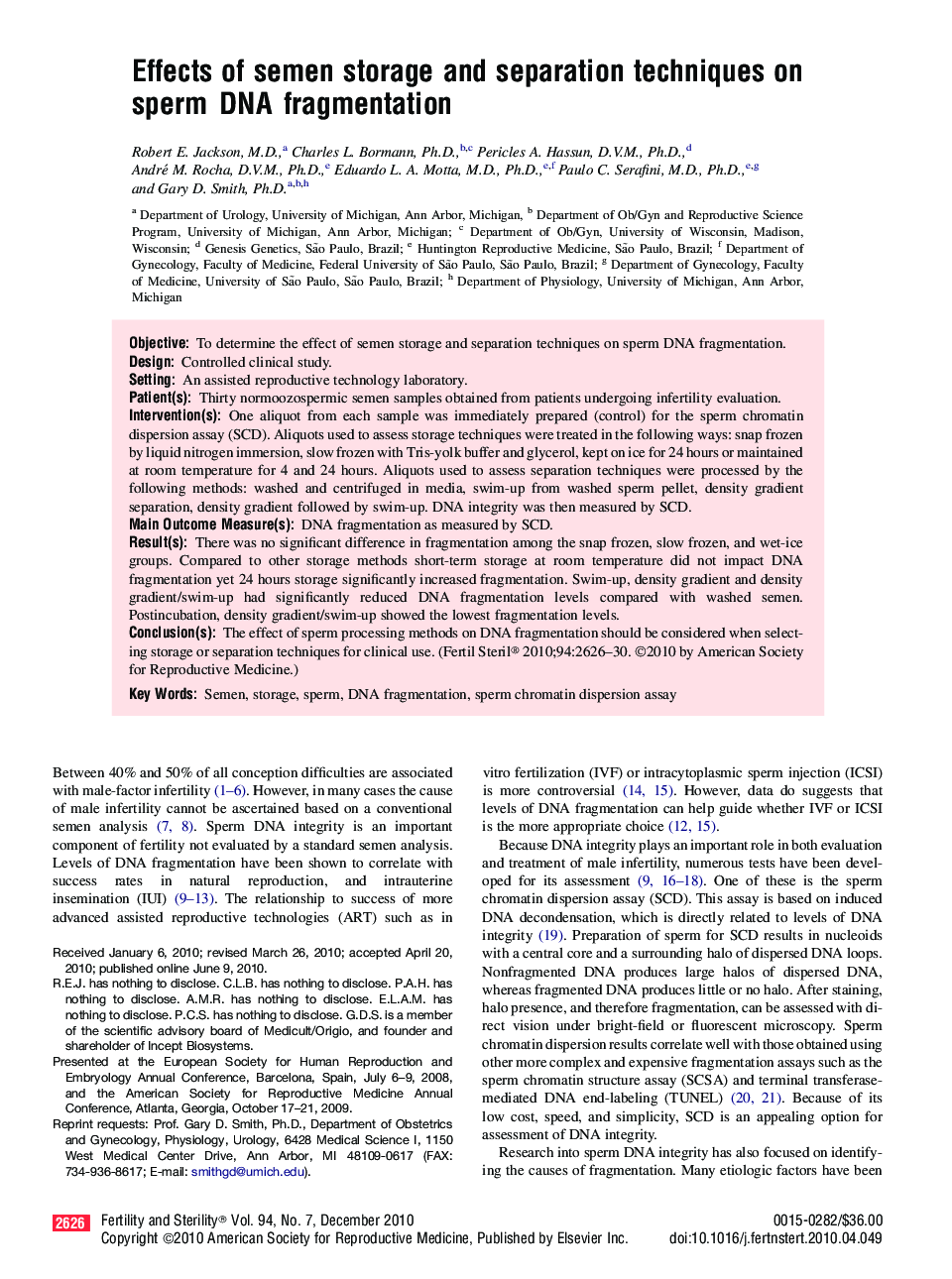| Article ID | Journal | Published Year | Pages | File Type |
|---|---|---|---|---|
| 6181244 | Fertility and Sterility | 2010 | 5 Pages |
ObjectiveTo determine the effect of semen storage and separation techniques on sperm DNA fragmentation.DesignControlled clinical study.SettingAn assisted reproductive technology laboratory.Patient(s)Thirty normoozospermic semen samples obtained from patients undergoing infertility evaluation.Intervention(s)One aliquot from each sample was immediately prepared (control) for the sperm chromatin dispersion assay (SCD). Aliquots used to assess storage techniques were treated in the following ways: snap frozen by liquid nitrogen immersion, slow frozen with Tris-yolk buffer and glycerol, kept on ice for 24 hours or maintained at room temperature for 4 and 24 hours. Aliquots used to assess separation techniques were processed by the following methods: washed and centrifuged in media, swim-up from washed sperm pellet, density gradient separation, density gradient followed by swim-up. DNA integrity was then measured by SCD.Main Outcome Measure(s)DNA fragmentation as measured by SCD.Result(s)There was no significant difference in fragmentation among the snap frozen, slow frozen, and wet-ice groups. Compared to other storage methods short-term storage at room temperature did not impact DNA fragmentation yet 24 hours storage significantly increased fragmentation. Swim-up, density gradient and density gradient/swim-up had significantly reduced DNA fragmentation levels compared with washed semen. Postincubation, density gradient/swim-up showed the lowest fragmentation levels.Conclusion(s)The effect of sperm processing methods on DNA fragmentation should be considered when selecting storage or separation techniques for clinical use.
